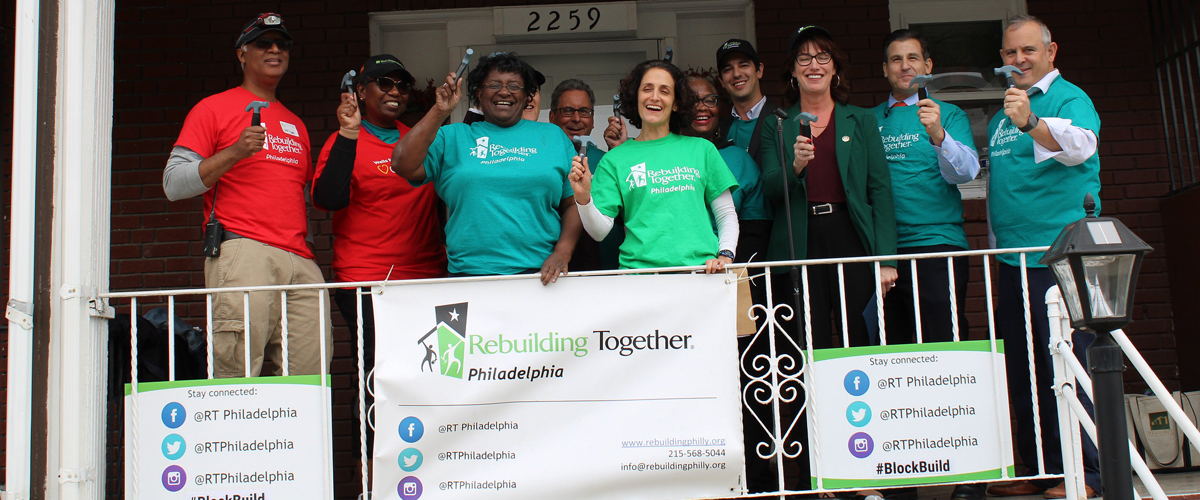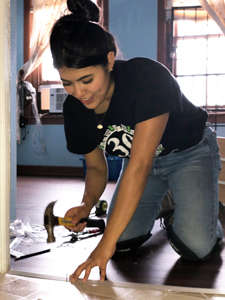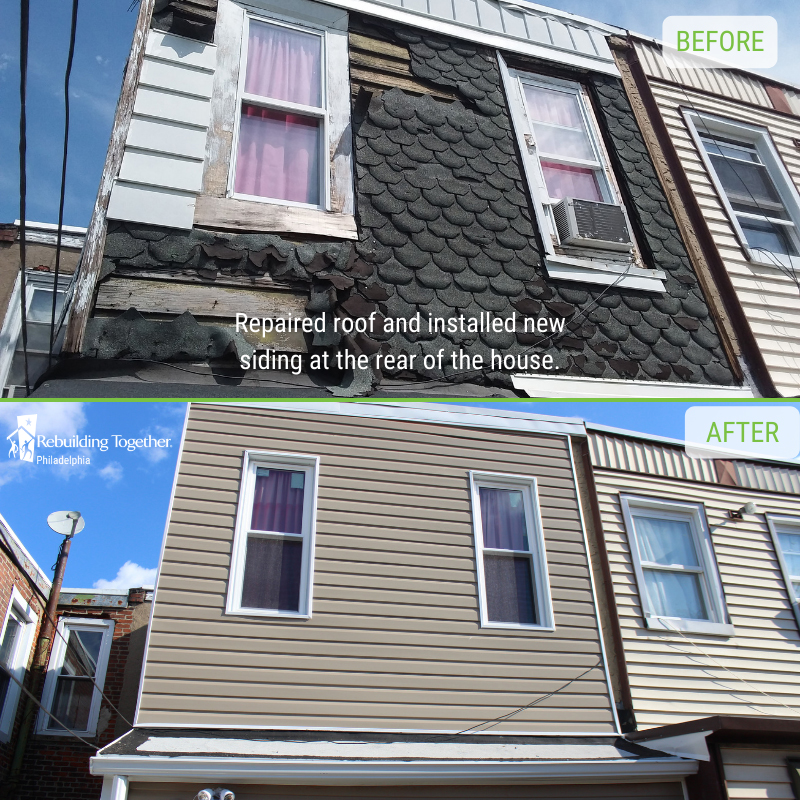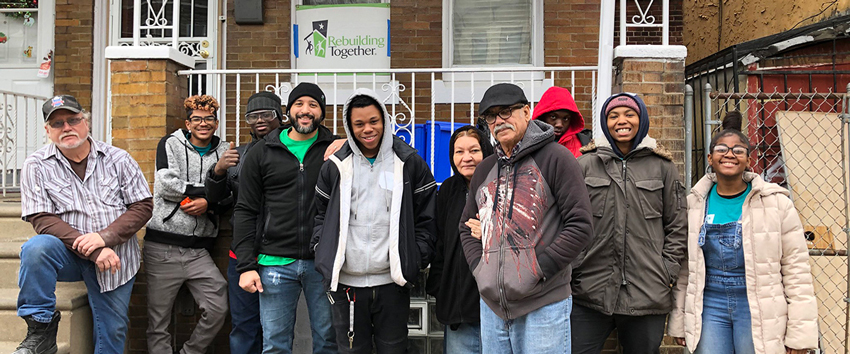
Feb. 11, 2020—Kendal Charitable Funds has awarded a $50,000 Promising Innovations grant to Rebuilding Together Philadelphia (RTP) to fund a two-year initiative to help low-income older adults age in place. The grant will support RTP’s efforts to repair and improve the residences of an estimated 30 homeowners in 2020 and 2021 to make them safer, healthier and more energy- and cost-efficient.
In its grant application, RTP states that its repair program “will prevent slip and falls, remove asthma and other serious breathing problem triggers, reduce utility overages/expenses and generally provide interventions that are proportionally low-cost compared to accident- and illness-necessitated emergency and surgical interventions.”
RTP prevents falls and injuries by securing loose thresholds, installing grab bars and ensuring that stairs and ramps have secure handrails. It reduces the causes of asthma by eliminating mold, removing old carpeting and patching exterior holes. And it addresses plumbing issues, replaces nonworking appliances, installs carbon monoxide detectors and replaces kitchen exhaust fans, if necessary, to improve sanitary conditions for low-income homeowners.
125 Homes Repaired Annually
 Now in its 31st year providing free repair work in vulnerable, owner-occupied houses in Philadelphia, RTP partners with community-based organizations, homeowners and over 1,000 volunteers to repair 125 homes annually.
Now in its 31st year providing free repair work in vulnerable, owner-occupied houses in Philadelphia, RTP partners with community-based organizations, homeowners and over 1,000 volunteers to repair 125 homes annually.
“Our objective is to remove health and safety hazards in the home and doing that cost-effectively with volunteers and trusted contractors,” says Stefanie Seldin, RTP’s President and CEO. “We start by doing home evaluations six to eight months before the two-day volunteer projects. In between, RTP’s carpenters and subcontractors repair and rebuild.”
RTP’s assessments include a standardized eligibility checklist, a homeowner interview and evaluation of the home by RTP staff. Salus University occupational therapy students and their supervisor, or an occupational therapist who is an RTP board member, meet with older and disabled homeowners to talk about what challenges they have with mobility or health problems like asthma. They also determine where and at what height grab bars should be installed and check that stairs and ramps have secure handrails.
“If someone has trouble standing for long periods, the occupational therapist might recommend a special chair for the kitchen so they can sit up high enough to work at their stove or counter,” Seldin says. “If they’re having vision problems, we might recommend lighting in the hall that goes on automatically, like a motion sensor light, so that in the middle of the night as they walk to the bathroom, the hallway lights up. So, they’re not necessarily expensive remedies, but they can prevent a fall that leads to hip-replacement surgery.”
3 Block Builds Each Year
RTP orchestrates three Block Builds a year, with two rebuilding days each that involve 100 to 250 volunteers, neighbors and homeowners repairing 10–15 clustered homes in a targeted neighborhood. Individuals, church groups and employees of corporate sponsors all work together as volunteers during Block Builds. The repairs and renovations requiring specialized skills—like window replacement, electrical wiring, roofing and plumbing—are done by paid contractors.
“Every homeowner is invited to participate in a live phone survey with one of our staff members before and after the repairs are done so that we can see what changed in their perception and experience of their house in terms of health, safety and mobility,” Seldin says. “For low-income older adults in the inner city, the most affordable house is the one they’re already in — if it’s well-maintained.”
A panel of leading experts on aging selected RTP’s proposal for funding from among 132 letters of intent and 12 finalists from across the nation. Promising Innovation grants provide seed money for new or expanded services that are in keeping with Kendal’s Values and Practices.
“The Grant Selection Committee came to consensus on your proposal because of its potential for change and replication,” Beverly Grove, Kendal Charitable Funds Executive Director, noted in a letter informing RTP that it had awarded a $50,000 grant. “The committee was most impressed by the meaningful collaborations and partnerships that you hope to establish through this project, the materials that will be developed and your excellent track record with other projects.”

About Kendal Charitable Funds
Kendal affiliates work together within the Kendal System and with caring people outside of it to transform our culture’s view of aging and of older persons, stressing the potential for fulfillment and continuing contribution during the later stages of life. Kendal Charitable Funds, established in 1989, raises and disburses funds in support of Kendal’s charitable purposes, including many outreach efforts. As a system of not-for-profit communities, programs and services founded on the principles of the Religious Society of Friends (Quakers), Kendal aspires to transform the experience of aging.
In 2007, the Kendal Charitable Funds board approved the creation of the Lloyd Lewis Fund to support advances in serving older adults through the Promising Innovations campaign. The fund and campaign were made possible by a gift of $250,000 from the Janet Comey Foundation, a private foundation established through the estate of former Kendal at Longwood resident Janet Comey. Since then, the Promising Innovations campaign has raised over $500,000 in matching gifts, more than tripling the size of the Lloyd Lewis Fund.

